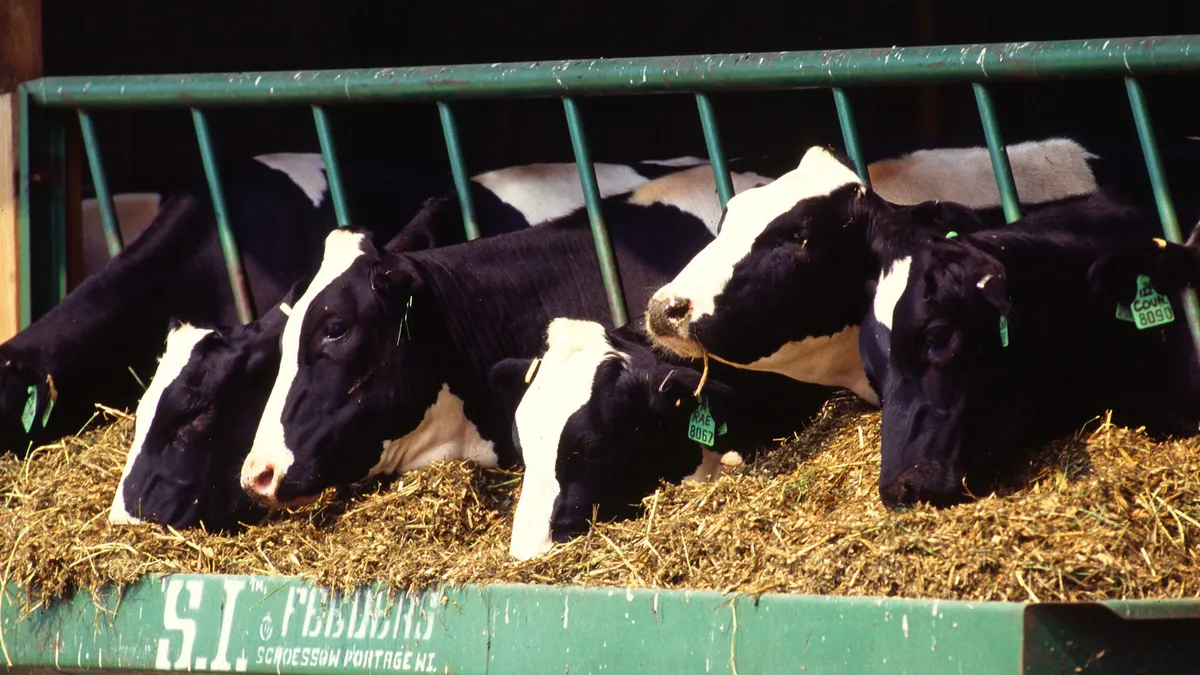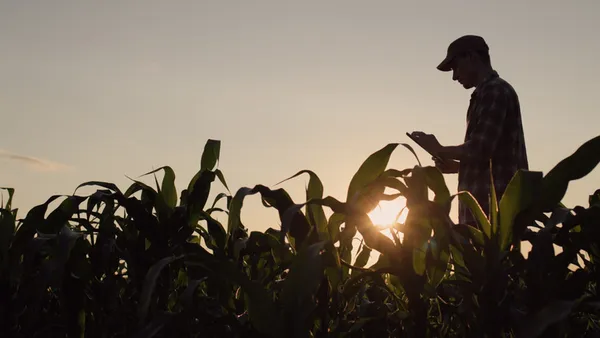Dive Brief:
- Close to 200 environmental groups called on the U.S. Department of Agriculture to reconsider extending federal funding to farms that turn manure into biofuel through anaerobic digestion, arguing it undermines the agency's effort to fight climate change.
- "[M]anure biogas entrenches factory farms, worsens market consolidation, deepens environmental injustices with air and water pollution, fails to address climate change, and is a waste of taxpayer resources," the groups wrote in a letter to USDA Secretary Tom Vilsack last week.
- The agency's Natural Resources Conservation Service last month expanded practices eligible for climate-smart funding under the Inflation Reduction Act to include waste storage facilities, roofs and covers, and other waste management tactics associated with biogas production.
Dive Insight:
A push to transition to renewable fuels has supercharged on-farm digester projects across the country. Even oil and gas giants have joined in on the "brown rush," teaming with dairies to scale production of biofuels.
Cattle manure is typically stored in large lagoons that can encourage formation of methane, and dairy digesters prevent those greenhouse gasses from escaping into the atmosphere. Once trapped, the gas captured can be burned for renewable electricity or used in vehicle fuel, offering a lucrative revenue stream for an industry that's historically struggled with tight margins.
In California, dairy digestion has become central to emissions-reducing efforts. The state began investing heavily in 2015 to expand the practice, and says it resulted in a 25% reduction in methane emissions from dairies. The Inflation Reduction Act passed last year created new opportunities for the expansion of biodigesters, with the American Biogas Council saying the legislation will "fuel growth of the biogas and clean energy industries for years to come."
However, environmental activists argue the practice does little for the climate and comes at an enormous cost to producers and taxpayers. Digesters can – and do – leak, and poor wastewater management has caused massive spills and led to complaints from local communities about the smell.
Additionally, biodigesters require large herds of cattle in order to be profitable, which environmental activists say encourages farms to get even bigger to maximize waste generation opportunities. USDA's move to approve biogas production for federal funding goes against its environmental agenda and its efforts to uplift smaller farms, climate groups added.
“Factory farm gas and its dirty methane digesters have no place in our clean energy future or sustainable agriculture,” Food & Water Watch Senior Food Policy Analyst Rebecca Wolf, an organizer of the letter, said in a statement. “USDA’s latest approved practices only double down on pollution, and divert millions in much-needed federal climate funding from smaller, more sustainable producers.”











